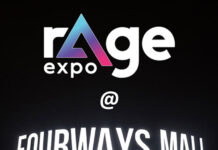
If you think that ‘disruptive marketing’ is just another jazzy phrase designed to sell new marketing products and is something that you, as a marketer and business owner, have no need to consider, think again. Marketing has mutated from a consistent and fixed set of methodologies into a network of variable, flux-driven, interactive and iterative processes. Failure to engage in this new approach could have a considerably negative impact on your customer retention and market share.
Disruption is all around us, from political and economic disruption through to social, scientific and technological. Disruptive innovations have caused giant brands (remember Kodak and Nokia before its facelift?) to falter and for new, leaner players to unexpectedly steal market share. To use a rather clichéd – yet apt – phrase: disruption is the new normal.
In the marketing environment, disruption signals the changing process that occurs when new digital technologies and business models begin to affect the value proposition of existing goods and services.
It is important to understand that beyond the hype, disruption in marketing practically demands businesses and brands to think differently about how they communicate their value, and indeed, whether that articulated value remains relevant in the new digital and social marketplace in which our products and services jostle for position.
Disruptive marketing – actually, disruptive anything – happens at a relentless pace. This is an additional challenge for marketers. While developing strategies to deliver long-term sustainability, the always-on and interactive nature of our customers can topple the solid building blocks of established retention strategies if these are not attuned to customer demands, which themselves can be disquietingly mutable.
In this environment, we need to ask some hard questions. For example, how do we remain proactive rather than reactive? In fact, should we be including a reactive approach as part of our marketing arsenal, rather than regarding this as a problematic framing to consumer interactions? How do we not only keep up with our consumers, but anticipate their changing needs? How do we keep our products and services relevant to our customers without compromising on brand integrity?
There must be recognition of the many ‘faces’ of disruptive marketing and a continued notion of ‘seeking to recognise’. Some of those faces are:
The new beast: a consumer that is empowered with a bold, new attitude, demanding behaviours and strong peer influence driven by a greater social awareness.
Experiential retention: a user experience that requires the delivery of fresh, instant and personal resolve every time.
Fortune-telling technologies: predictive technologies are able to pre-select, automate, and personalise customer engagement.
Hungry for new: innovation that produces never-before-seen products and solutions
Validation: recognition and powerful validation of digital influencers who share, promote, evangelize and critique.
These ‘faces’ open up vast opportunities that we cannot afford not to grasp. As marketers, the powerful array of choices that modern technology offers can enable us to tell truly integrated brand stories.
In this context, one thing remains as true of the new as it did of the old: our brands cannot be all things to all people. Evaluation and consolidation remain critical activities rather than chasing after every hot new thing that comes along. The key is to know our brand context, understand the value that we are able to offer in this context, and then to ensure that the ‘disruptive network’ forms an optimal conduit.
Disruptive marketing is beyond the already known, and can be an exciting source of the ‘new’ and ‘inspirational’. It should not fill us with trepidation. As marketers, if we get to grips with the fact that disruptive marketing has forever changed the way we regard – and interact with – our consumers, we will have a powerful advantage.
The Integrated Marketing Communications Conference (IMC) to be held in early 2018 will provide marketers with a space where they can discover how others have adapted and adopted disruption into their marketing within a range of critical areas. It will afford us a moment to take stock of our channels to market, and to understand and apply the power of integration to future-proof our marketing plans.
The ultimate win as disruptive marketers is to ensure that disruption becomes our new comfort zone; flux and iteration the cornerstones of our strategies. It’s not about bolting on disruptive marketing to our existing traditional marketing mix. Disruption is the signal that an evolution of our entire ecosystem of business, brands, people, and markets is underway.
Dale will be MC at the Integrated Marketing Communications Conference 2018 on the 8 Feb 2018, Vodaworld, Midrand. 27 of the industry’s top minds will present across three stages, tackling nine topical themes in interactive sessions under the theme Evaluate, Consolidate, Integrate. Heated debates, networking platforms and learning content will be packed into one exhilarating day as big brands, top agencies and media owners come together to examine how the local and continental marketing industry is embracing new and exciting trends in the emerging market space.
Register here: http://imcconference.com/conference/johannesburg-2018/home/
About IMC:
The Integrated Marketing Communication Conference (IMC Conference) is a one day, content-packed event with a central theme focused on using different combinations of communication disciplines (i.e. Advertising, Direct Marketing, Public Relations, etc.) in synergy, with the purpose of delivering the right message to the desired audience.
The conference aims to find a balance between educating, entertaining and engaging the delegates, giving them first-hand, case-study exposure to the most innovative IMC trends. From this, delegates will be able to select the tools which they feel can be best implemented to suit their marketing communication strategies.
The first IMC Conference was hosted in 2010 in Cape Town. Since then, 12 conferences have been held in Cape Town, Johannesburg and Durban.



















































































